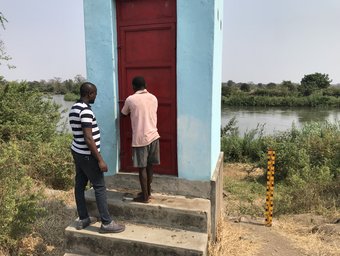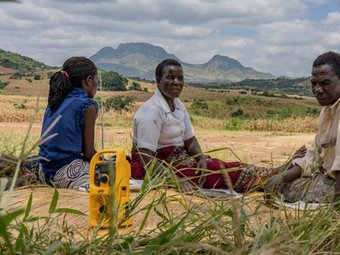Categories
Malawi
Key facts
Hazards covered by anticipation
Drought | Epidemics | Floods
Anticipation partners in country
Malawi Red Cross Society | Danish Red Cross | 510 initiative of the Netherlands Red Cross | Red Cross Red Crescent Climate Centre | Department of Disaster Management | Department of Water Resources | Department of Climate Change and Meteorological Services | Department of Economic and Planning | WFP | FAO
INFORM risk index (2022)
Hazard and exposure: 2.9
Vulnerability: 5.6
Lack of coping capacity: 6.4
Total: 4.7 (medium)
Rank: 52
Photo: Eskil Meinhardt Hansen / Danish Red Cross
Country profile
Malawi, a landlocked country in south-east Africa, is among the poorest countries in the world. Malawi’s economy and people largely depend on agriculture. More than 80 per cent of the population lives in rural areas and are dependent on subsistence farming as their main source of livelihood.
Drought and floods are the most frequent and significant hazards in Malawi, posing a threat to what is mostly rain-fed agriculture. In the past, severe floods and drought have reduced people’s coping capacity and the stability of livelihoods. Recurring drought leads to the loss of crops and livestock, thus contributing to food insecurity and severe food crises.
Riverine and urban flooding cause loss of life, and widespread damage to housing, infrastructure and agricultural products. In 2015, economic losses due to extreme events reached approximately 10 per cent of gross domestic product and led to the displacement of up to 200,000 people.
In addition to drought and floods, Malawi faces extreme heat, wildfires, cyclones, landslides, earthquakes, pest infestations and diseases outbreaks. Environmental degradation and climate change exacerbate the frequency and severity of these disasters in Malawi.
Projects
Building resilience and adapting to climate change
Anticipatory action for drought is a component of the 'Building resilience and adapting to climate change' (BRACC) project, which began in 2018 and aims to: reduce the impacts of climate shocks; respond to seasonal consumption needs; support the design of social safety nets; and generate evidence and knowledge to inform government policy. The anticipatory action element strives to strengthen operational systems for forecast-based financing.
FAO is working to support early action for drought in Malawi.
Forecast-based action in Malawi
Since 2017, the Malawi Red Cross Society, with support from the Danish Red Cross, has been working to develop an Early Action Protocol for floods to reduce their impact on vulnerable populations. The project collaborates with the Climate Centre, the 510 initiative of the Netherlands Red Cross, WFP and agencies from the Malawi government.



